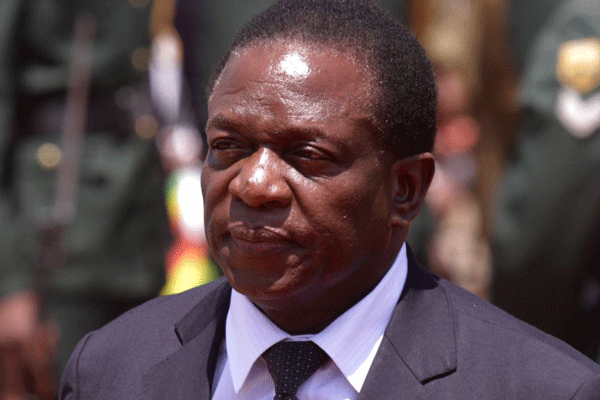The ascendance of President Emmerson Mnangagwa following the departure of Robert Mugabe through a military
intervention came with it massive changes within the mining landscape, key to it being a change in policies.
Keen to revive the mining sector after years of reticence by foreign investors during Robert Mugabe’s rule, President
Mnangagwa has managed to turn the country’s investment environment into a darling for many.
His summit to power has seen the country amassing a great deal of investments and other tangible commitments coming from hostile countries as far as United States of America.
All this has been driven by the “Zimbabwe is open for business” mantra, which has become the Government’s magic bullet going into the coming harmonised elections.
What has changed during Mnangagwa rule?
The takeover of Mnangagwa saw Zimbabwe amending its Indigenisation and Economic Empowerment legislation
to limit majority ownership by state entities to only diamond and platinum mines and not the entire mining sector as espoused in the previous legislation. The indeginisation legislation introduced during the tenure of Mugabe was
designed to increase black Zimbabweans’ participation in the mining sector but were open to abuse.
The legislation had become an elephant in the room for Mugabe’s Government and it also became a major hindrance to attraction of tangible and clean investments in the mining sector.
The amendments were included in the Finance Act, which covers the 2018 budget and were signed into law.
According to the new amendments, only state-owned mining entities will hold majority shares in diamond and platinum companies.
Besides the amendments, Zimbabwe has overcome unprecedented change since November 2017, when President
Mnangagwa took office. This political change has boosted business confidence and caught the attention of the
international market.
This change at the top has encouraged a unanimous feeling across the country and the international community. The mining sector in particular is one which is drawing lots of positive attention.
The Zimbabwean mining industry faces many challenges which were highlighted at the conference: Many projects in the country have been starved of any form of funding for over 10 years. Estimates have suggested that Zimbabwe will need $7 billion to fund any immediate capital expenditure requirements if the mining industry is to
return to anything like its former self.
What has been the massive development during the coming of Mnangagwa has been a change of perception from
investors. Caledonia Mining Corporation chief executive Steve Curtis recently noted the coming of a new political dispensation has generated massive interest from investors especially from America.
He said if the current investment is to be maintained by sound policies, the Zimbabwean mining sector is set for
massive and sustained growth.
How much investment has come in during Mnangagwa rule?
The Mnangagwa administration has managed to have fruitful engagements with several investors eyeing the local
mining sector. Not much investments have been realised besides the $4,2 billion platinum deal earmarked for the
Mhondoro-Ngezi area.
Another investment to note has been a promise by Russia to start injecting funds into its Darwendale platinum project. The revelations were made by the Russian Foreign Affairs Minister Sergei Lavrov during his visit recently
in Zimbabwe.
A majority of investors who have engaged Government so far have been making commitments but no real investment has been done. It has been a matter of promises and mining analysts are of the opinion that most investors are waiting for elections outcome.
Commitments and Promises made so far
An American investor MGG Holdings made a commitment to invest close to $60 million towards the Zimbabwean mining sector mainly focusing on chrome and gold.
The world’s second biggest diamond mining company, Alrosa, is currently in Zimbabwe exploring investment opportunities amid huge optimism the Russia-based firm, whose annual turnover stands at $4 billion, could soon
start operating locally.
The mining giant is only second to De Beers, and specialises in exploration, mining, manufacture and sale of diamonds. It has African operations in Botswana and Angola.
President Mnangagwa was recently in China where he also signed a lot of memorandum of understanding with Chinese companies willing to invest in the Zimbabwean mining sector.
Outlook
A lot has been expected from Mnangagwa in a short space of time since his ascendance to power. However with sound and consistent policies, the local mining sector is set for a boom.
More investors are expected going forward.
This article first appeared in the Mining Zimbabwe Magazine may 2018 Issue




